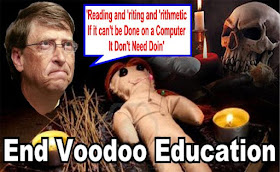MOOCs and the Failure of Innovators
Massive Open Online Courses took off five years ago, when Sebastian Thrun and Peter Norvig decided to stream the computer lectures from Stanford out across the internet to the world. It seemed like such a winner of an idea that Thrun co-founded Udacity, one of the leading providers of interwebbified education. Thrun was so sure of this idea that he predicted in a 2012 interview at Wired that in fifty years, only ten higher education institutions would still be standing. He and other MOOC launchers were certain that they "had inspired a revolution."
They did not know what the hell they were talking about.
In the beginning, MOOC completion rate was a whopping 7%. Nowadays that has inched up to almost 13% average. These are not impressive numbers. Nor are MOOCs putting universities out of business. As Ubell reports, research shows that people just graze or glance or bounce in for a minute. Those "who did finish a MOOC were accomplished learners, many with advanced degrees." In other words, people who are more than capable of teaching themselves from whatever resource, whether it be a MOOC or, say, a book.
What happened? A common reformster problem-- MOOC-ophiles were trying to disrupt practices that were no longer the norm in education. They figured that a MOOC would be more engaging than a CURMUDGUCATION: MOOCs and the Failure of Innovators:





